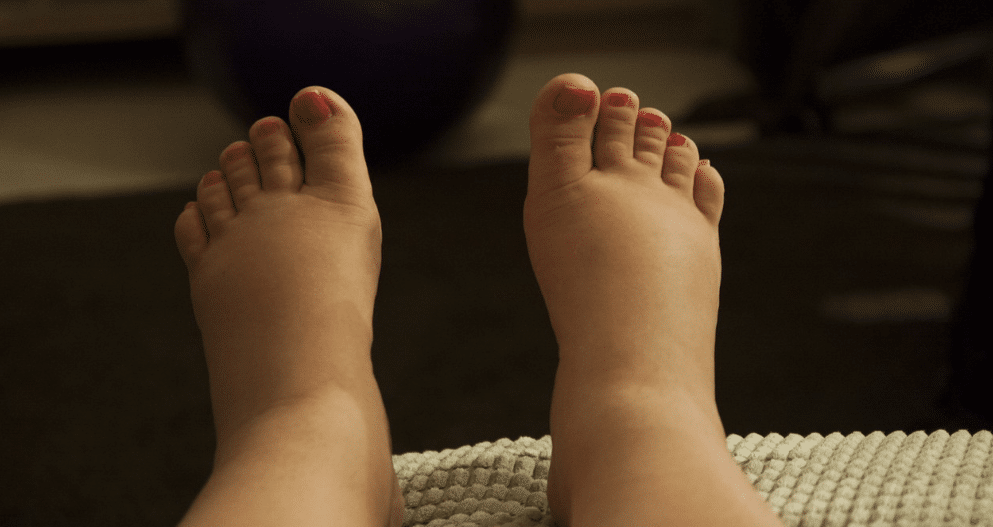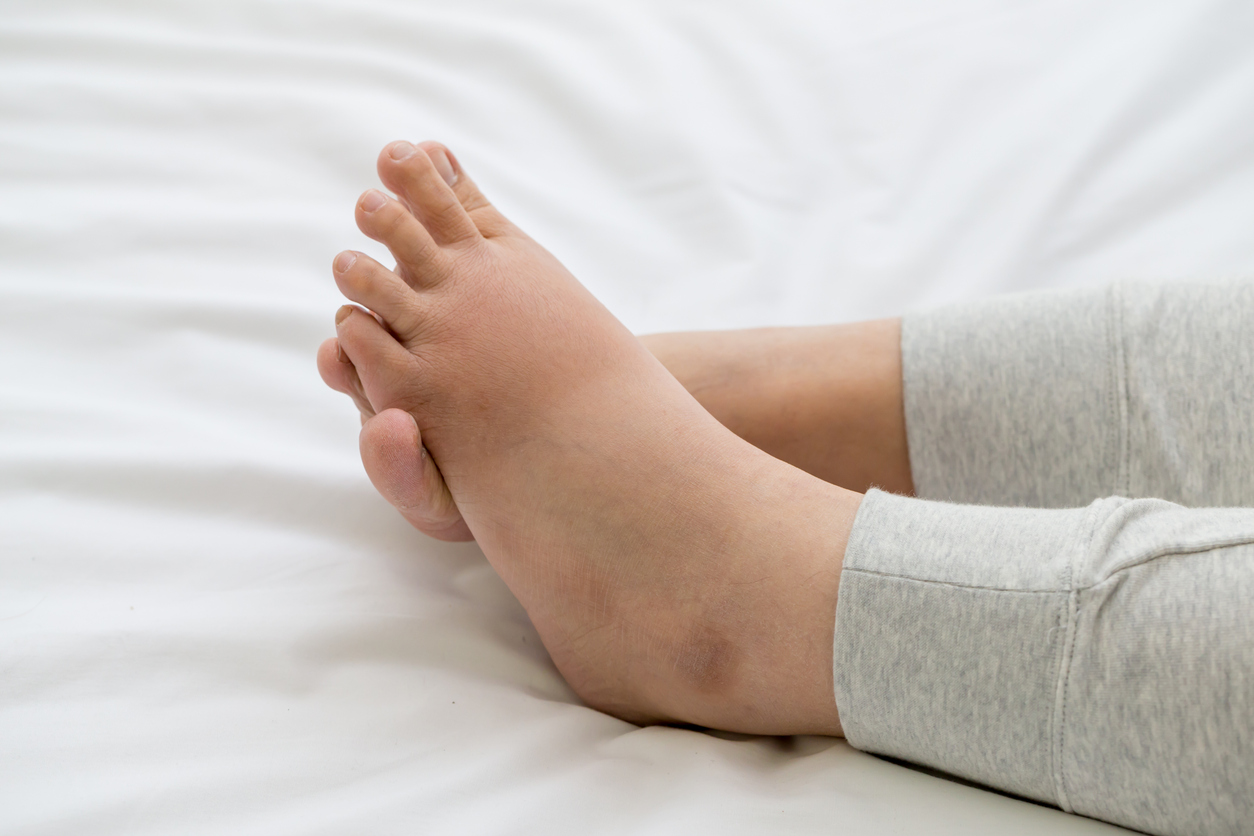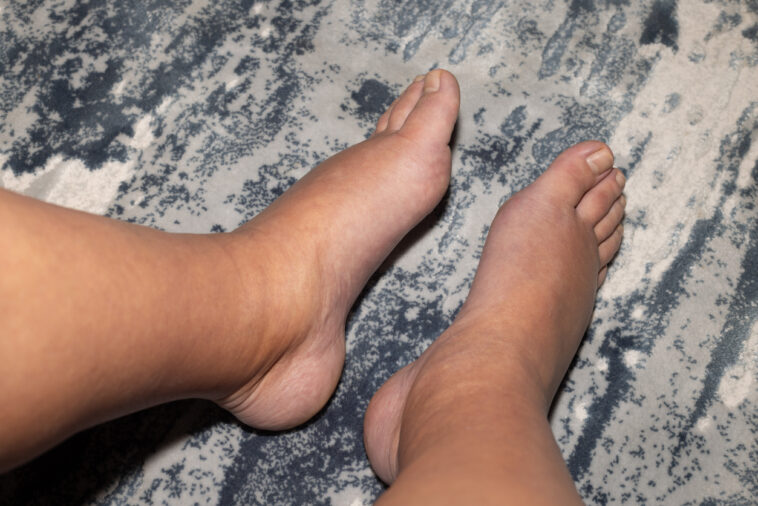Do your feet swell with the heat? In fact, it is generally due to venous insufficiency making venous circulation difficult in the veins of the lower limbs. Poor venous return will promote water retention, the feeling of heavy legs, tingling and swelling of the feet and calves. During the day, your toes begin to squeeze in your comfortable shoes and walking becomes torture due to the compression! Here is a remedy to quickly relieve your swollen feet when they swell from heat.
What you need to deflate:
- A sachet of sodium chloride or nigari (20 g or 2 tablespoons)
- A basin
- Optional: a few sage leaves (to reduce excessive sweating)
How to relieve feet that swell quickly:
1) Take your basin and fill it with lukewarm water.
2) Dilute your sodium chloride in it.
3) Give your feet a little dip in this solution. Allow at least 15 minutes of relaxation.
4) Then take care to dry them.

Other natural remedies for more relief:
Do you prefer essential oils? Use 10 drops of cypress essential oil and 5 drops of lemon essential oil to promote lymphatic drainage of your painful feet! They are used in a foot bath diluted in salt or bicarbonate or massaged after diluting in aloe vera or vegetable oil. For the massage, start from the heels and move up along the swollen ankles and then your extremities to soothe the heaviness. Please note, essential oils are prohibited for pregnant women suffering from swollen ankles.
In infusion or foot bath, the red vine helps relieve heavy legs. L’witch hazel is very effective against cramps in the feet and ankles, varicose veins and swelling of the feet. Finally, horse chestnut will make your legs light!
A few more tips to relieve your swollen feet:

Relieve swollen feet every day
First, try to stay in the shade or cool places on hot days. Using fans or air conditioners can also help maintain a comfortable body temperature. For a refreshing boost that will make you deflate, treat yourself to refreshment with a jet of cold water varying the temperature and going from bottom to top to help venous return. Above all, don’t do this with ice water.
Soaking the feet in cold water for 10 to 15 minutes can additionally also help reduce inflammation and relieve pain. You can also alternate with hot and cold foot baths to improve blood circulation.
It is finally possible to regularly elevate your legsfor example by placing them vertically against the wall or placing them on another chair if you work seated. This will restart traffic. Furthermore, at night, place a cushion under your swollen feet to facilitate blood flow.
Food and sport: two points to consider
Watch your weightreduce your consumption of fatty foods and favor foods rich in antioxidants (omega-3, vitamins C and E) and foods good for blood vessels (fish, chicken breast, peppers, red fruits, tomatoes, etc.). Consume foods rich in potassiumsuch as bananas and spinach, can be particularly beneficial. In parallel, reduce salt intake can help prevent water retention. Also practice appropriate physical activity. Light exercises like walking, swimming, leg stretches, and ankle rotations can promote blood circulation and prevent swelling.
Finally, drinking plenty of water helps prevent water retention. Avoid caffeinated drinks and alcohol, as they can promote dehydration.
Choosing the right outfit: an essential point
For starters, wearing comfortable, well-fitting, and breathable shoes can prevent swelling in your feet. Always avoid shoes that are too tight or those that do not allow good air circulation. Also wear light, loose clothing to avoid compression. In any case, avoid tight clothing, especially around the waist, ankles and calves..
If these tips aren’t enough, put on support stockings. They are particularly particularly useful for people who must stand or sit for long periods. You can also soak class 3 stockings in menthol and wear them for 5 minutes for immediate relief in case of extreme heat.
Important: don’t underestimate the problem of swollen feet
Finally, remember to consult a doctor to rule out any risk of venous thrombosis (or phlebitis). Circulatory problems are in fact not never trivial and may indicate heart, kidney or venous problems.


